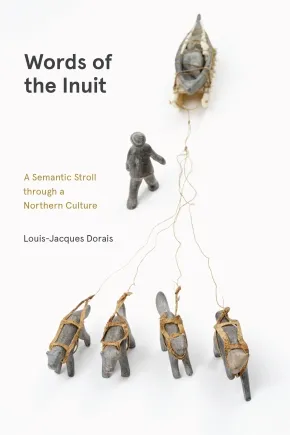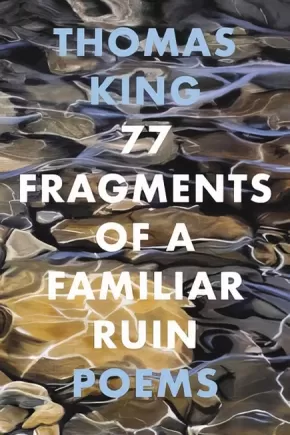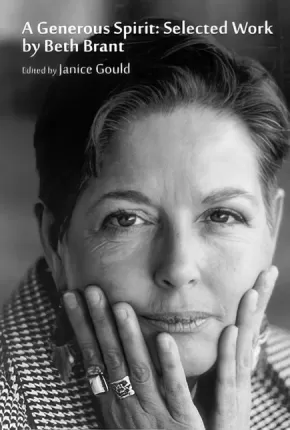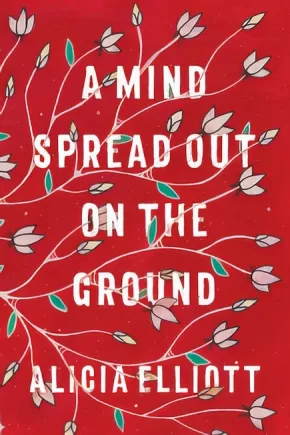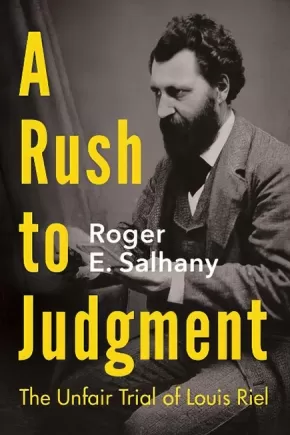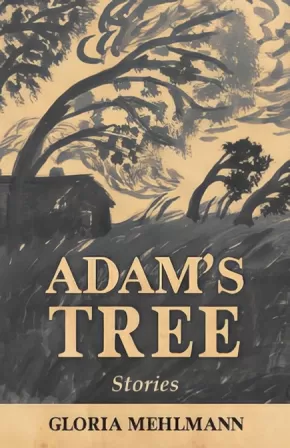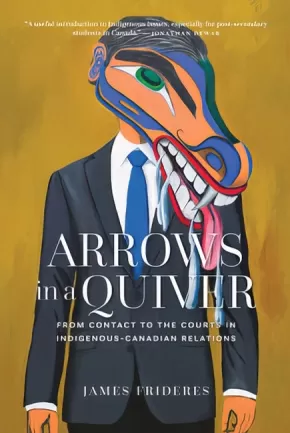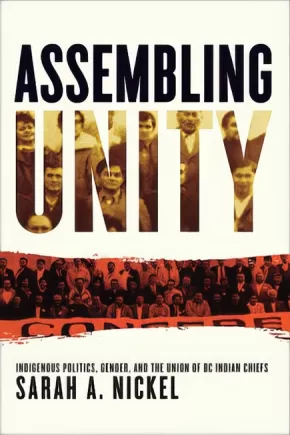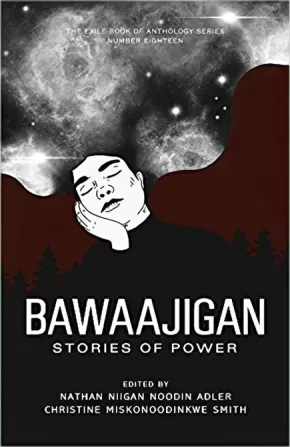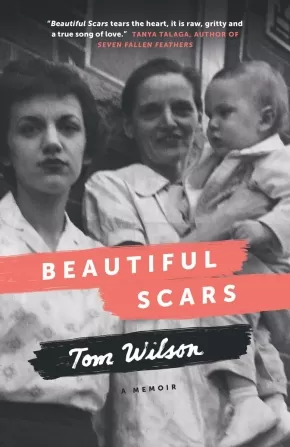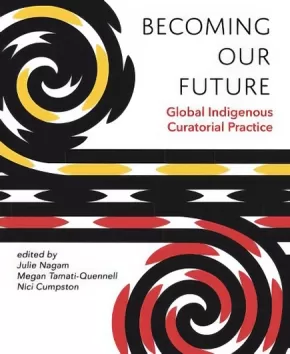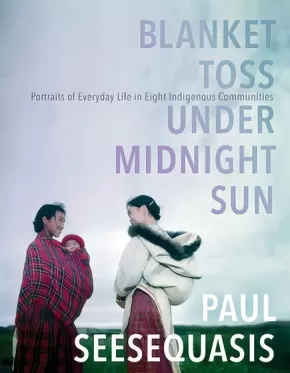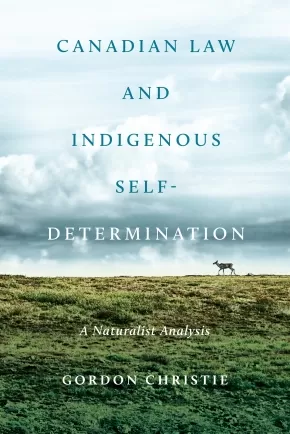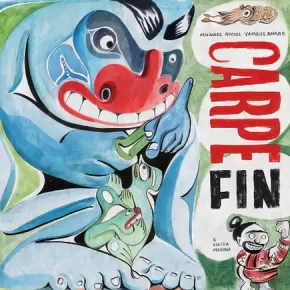
Indigenous Peoples in Canada
646
-
660
of
1085 Results;
Sort By
Go To
of 73
Words of the Inuit: A Semantic Stroll through a Northern Culture
$31.95
Format:
Paperback
Text Content Territories:
Indigenous Canadian; Inuit;
Grade Levels: University/College;
ISBN / Barcode: 9780887558627
Synopsis:
Synopsis:
Words of the Inuit is an important compendium of Inuit culture illustrated through Inuit words. It brings the sum of the author’s decades of experience and engagement with Inuit and Inuktitut to bear on what he fashions as an amiable, leisurely stroll through words and meanings.
Inuit words are often more complex than English words and frequently contain small units of meaning that add up to convey a larger sensibility. Dorais’ lexical and semantic analyses and reconstructions are not overly technical, yet they reliably evince connections and underlying significations that allow for an in-depth reflection on the richness of Inuit linguistic and cultural heritage and identity. An appendix on the polysynthetic character of Inuit languages includes more detailed grammatical description of interest to more specialist readers.
Organized thematically, the book tours the histories and meanings of the words to illuminate numerous aspects of Inuit culture, including environment and the land; animals and subsistence activities; humans and spirits; family, kinship, and naming; the human body; and socializing with other people in the contemporary world. It concludes with a reflection on the usefulness for modern Inuit—especially youth and others looking to strengthen their cultural identity —to know about the underlying meanings embedded in their language and culture.
With recent reports alerting us to the declining use of the Inuit language in the North, Words of the Inuit is a timely contribution to understanding one of the world’s most resilient Indigenous languages.
Reviews
"Professor Dorais once again provides expert information and insight into the Inuit language and culture as only he can. This book is written so that academics, Inuit and the public can all learn more about the people who live in Canada’s most northern region. By examining the rich meanings contained within words of Inuktitut, Dorais details social nuances and core aspects of both traditional and modern Inuit culture.”— Alana Johns
Educator Information
Table of Contents
Introduction: Words from the Past, A Stroll Through Inuit Semantics
Ch. 1: Words for Speaking About the Environment and Land
Ch. 2: Words for Speaking About Animals and Subsistence Activities
Ch. 3: Words for Speaking About Humans and Animals
Ch. 4: Words for Speaking About Family, Kinship, and Naming
Ch. 5: Words for Speaking About the Human Body
Ch. 6: Words for Socializing in the Contemporary World
Conclusion: Words for the Future
Additional Information
344 pages | 6.00" x 9.00" | 2 maps, 2 figures, bibliography
77 Fragments of a Familiar Ruin
$19.99
Format:
Paperback
Text Content Territories:
Indigenous Canadian;
Grade Levels: University/College;
ISBN / Barcode: 9781443459440
Synopsis:
Synopsis:
Timely, important, mischievous, powerful: in a word, exceptional.
Seventy-seven poems intended as a eulogy for what we have squandered, a reprimand for all we have allowed, a suggestion for what might still be salvaged, a poetic quarrel with our intolerant and greedy selves, a reflection on mortality and longing, as well as a long-running conversation with the mythological currents that flow throughout North America.
Additional Information
96 pages | 6.00" x 9.00"
A Generous Spirit: Selected Works by Beth Brant
$22.95
Editors:
Format:
Paperback
Text Content Territories:
Indigenous Canadian; First Nations; Haudenosaunee (Iroquois); Kanyen'keha:ka (Mohawk); Tyendinaga;
Grade Levels: University/College;
ISBN / Barcode: 9781771336857
Synopsis:
Synopsis:
A Generous Spirit: Selected Work by Beth Brant collects the writing of Beth Brant, Mohawk lesbian poet, essayist, and activist. During her life, Brant's work gave voice to an often unacknowledged Two-Spirit identity, and today, her words represent continued strength, growth, and connection in the face of deep suffering. A Generous Spirit is Brant's portrait of survival and empathy at the intersection of Native American and lesbian experience.
Edited by noted Native poet and scholar Janice Gould, A Generous Spirit recounts and enacts the continuance of her people and her sisters with distinct, organic voices and Brant's characteristic warmth. Her work is a simultaneous cry of grief and celebration of human compassion and connection in its shared experience. Through storytelling, her characters wrest their own voices from years of silence and find communion with other souls.
Additional Information
200 pages | 5.37" x 8.50"
A Mind Spread Out on the Ground
$21.00
Format:
Paperback
Text Content Territories:
Indigenous Canadian; First Nations; Haudenosaunee (Iroquois);
Grade Levels: 12; University/College;
ISBN / Barcode: 9780385692403
Synopsis:
Synopsis:
A bold and profound work by Haudenosaunee writer Alicia Elliott, A Mind Spread Out on the Ground is a personal and critical meditation on trauma, legacy, oppression and racism in North America.
In an urgent and visceral work that asks essential questions about the treatment of Native people in North America while drawing on intimate details of her own life and experience with intergenerational trauma, Alicia Elliott offers indispensable insight and understanding to the ongoing legacy of colonialism. What are the links between depression, colonialism and loss of language--both figurative and literal? How does white privilege operate in different contexts? How do we navigate the painful contours of mental illness in loved ones without turning them into their sickness? How does colonialism operate on the level of literary criticism?
A Mind Spread Out on the Ground is Alicia Elliott's attempt to answer these questions and more. In the process, she engages with such wide-ranging topics as race, parenthood, love, mental illness, poverty, sexual assault, gentrification, writing and representation. Elliott makes connections both large and small between the past and present, the personal and political--from overcoming a years-long history with head lice to the way Native writers are treated within the Canadian literary industry; her unplanned teenage pregnancy to the history of dark matter and how it relates to racism in the court system; her childhood diet of Kraft dinner to how systematic oppression is linked to depression in Native communities. With deep consideration and searing prose, Elliott extends far beyond her own experiences to provide a candid look at our past, an illuminating portrait of our present and a powerful tool for a better future.
Reviews
"This book is hard, vital medicine. It is a dance of survival and cultural resurgence. Above all, it is breathtakingly contemporary Indigenous philosophy, in which the street is also part of the land, and the very act of thinking is conditioned by struggles for justice and well-being." —Warren Cariou, author of Lake of the Prairies
"These essays are of fiercest intelligence and courageous revelation. Here, colonialism and poverty are not only social urgencies, but violence felt and fought in the raw of the everyday, in embodied life and intimate relations. This is a stunning, vital triumph of writing." —David Chariandy, author of Brother
"Wildly brave and wholly original, Alicia Elliot is the voice that rouses us from the mundane, speaks political poetry and brings us to the ceremony of everyday survival. Her words remind us to carry both our weapons and our medicines, to hold both our strength and our open, weeping hearts. A Mind Spread Out on the Ground is what happens when you come in a good way to offer prayer, and instead, end up telling the entire damn truth of it all." —Cherie Dimaline, author of The Marrow Thieves
"A Mind Spread Out on the Ground is a new lens on Indigenous Canadian literature." —Terese Marie Mailhot, author of Heart Berries
"We need to clone Alicia Elliott because the world needs more of this badass writer. A Mind Spread Out on the Ground showcases her peculiar alchemy, lighting the darkest corners of racism, classism, sexism with her laser-focused intellect and kind-hearted soul-searching. A fresh and revolutionary cultural critic alternately witty, vulnerable and piercing." —Eden Robinson, author of Son of a Trickster and Trickster Drift
"The future of CanLit is female, is Indigenous—is Alicia Elliott. I anticipate this book to be featured on every 'best of' and award list in 2019, and revered for years to come." —Vivek Shraya, author of I’m Afraid of Men and even this page is white
"In A Mind Spread Out on the Ground, Elliott invites readers into her unceded mind and heart, taking us on a beautiful, incisive and punk rock tour of Tuscarora brilliance. Elliott's voice is fire with warmth, light, rage and endless transformation." —Leanne Betasamosake Simpson, author of This Accident of Being Lost
"Alicia Elliott has gifted us with an Indigenous woman's coming of age story, told through engagingly thoughtful, painfully poignant and enraging essays on race, love and belonging. With poetic prose and searing honesty, she lays bare what it is like to grow up Indigenous and exist in a country proud of its tolerance, but one that has proven to be anything but. She opens eyes and captures hearts, leading you by the hand to see our fractured world through her eyes. Alicia is exactly the voice we need to hear now." —Tanya Talaga, author of Seven Fallen Feathers
"Incisive. That's the word I keep coming back to. A Mind Spread out on the Ground is incredibly incisive. Alicia Elliot slices through the sometimes complicated, often avoided issues affecting so many of us in this place now called Canada. She is at once political, personal, smart, funny, global and, best of all, divinely human. Necessary. That's the other word I keep thinking about. In every chapter, she manages to find the perfect word and the precise argument needed—I found myself saying 'yes, yes, that is exactly it' more than once. I am so grateful for her work." —Katherena Vermette, author of The Break
"A Mind Spread Out on the Ground is an astonishing book of insightful and affecting essays that will stay with you long after the final page." —Zoe Whittall, author of The Best Kind of People
Additional Information
240 pages | 5.75" x 8.50"
A Reconciliation without Recollection?: An Investigation of the Foundations of Aboriginal Law in Canada
$57.00
Format:
Paperback
Text Content Territories:
Indigenous Canadian;
ISBN / Barcode: 9781487521875
Synopsis:
Synopsis:
The current framework for reconciliation between Indigenous peoples and the Canadian state is based on the Supreme Court of Canada’s acceptance of the Crown’s assertion of sovereignty, legislative power, and underlying title. The basis of this assertion is a long-standing interpretation of Section 91(24) of Canada’s Constitution, which reads it as a plenary grant of power over Indigenous communities and their lands, leading the courts to simply bypass the question of the inherent right of self-government.
In A Reconciliation without Recollection, Joshua Ben David Nichols argues that if we are to find a meaningful path toward reconciliation, we will need to address the history of sovereignty without assuming its foundations. Exposing the limitations of the current model, Nichols carefully examines the lines of descent and association that underlie the legal conceptualization of the Aboriginal right to govern.
Blending legal analysis with insights drawn from political theory and philosophy, A Reconciliation without Recollection is an ambitious and timely intervention into one of the most pressing concerns in Canada.
Educator Information
This work would be useful for the following subjects or courses: History, Canadian History, Indigenous Studies, Indigenous Politics, Indigenous Law, Law and Society, Philosophy, Political Science.
Includes forwards by John Borrows (Professor and Canada Research Chair in Indigenous Law at the University of Victoria Law School) and James Tully (emeritus distinguished professor of Political Science, Law, Indigenous Governance, and Philosophy at the University of Victoria).
Table of Contents
Part 1 Reconciliation without Recollection
1.1 Reconciliation in Canadian Jurisprudence
1.2 Reconciliation as Picture Thinking
A) Historicism
B) The Ship of State
1.3 History, Law and Legitimacy
1.4 Problem of Reconciliation as Problem of Foundations
1.5 A Genealogy of the Indian Act
Part 2 A Genealogy of Reconciliation: Civilizing, Extinction and Culturalism as the Discursive Foundations of the Indian Act
2.1 Liberty and Legitimate Despotism: The Liberal-Imperialism of J. S. Mill
2.2 The Science of Savage Character: The Uncivilized and Mill’s Philosophy of History
A) Governing the Uncivilized: The Role of the Intermediate Body
B) Peace, Order and Good Government: Mill and the Indian Question
2.3 Reading the Right of History: Universal History and the Extinction Thesis
2.4 From Enfranchisement to Reconciliation: Culturalism and Indirect Rule
Part 3 A Despotism for Dealing with Barbarians: A Survey of the Foundations of Indian Policy in Canada
3.1 Pre-Confederation to the Indian Act of 1876
A) Imperial Federalism
B) Imperial Civilizing
C) Assimilation and Indirect Rule
D) Striation or Continuity?
3.2 The Indian Question and the Dominion
3.3 The Six Nations Status Case
A) The Six Nations of the Grand River
B) The League of Nations and the Mandate System
C) The Documents
3.4 A Building Crisis of Legitimacy
Part 4 A Law Without Measure for a Land Without Citizens: The Indian Act in Canadian Jurisprudence
4.1 The Authority of s. 91(24)
A) St. Catherine’s Milling, s. 91(24) and the Division of Powers
B) Interjurisdictional Immunity and s. 91(24)
C) The Theory of Enclaves
D) The Uncertain Measure of Indianness
E) Section 88 and Provincial Law
4.2 The Definition of Indians and the Authority of Bands
A) Legislative Origins
B) The Judicial Definition of Indians
C) The Judicial Definition of Bands
D) Custom Band Councils and the Question of Jurisdiction
4.3 Tsilhqot'in Nation and the Meaning of s. 91(24)
Part 5 An Era of Reconciliation, An Era of Indirect Rule: From the White Paper to the Full Box of Rights
5.1 The Hidden Player: Policy from Calder to the Indian Act, 1985
A) Line One: Legislative Renovation
B) Line Two: Land Claim Agreements
C) Line Three: Constitutional Change
D) The Penner Report
E) The Problem of Implementing the New Relationship
F) The Era of Indirect Rule and the Mechanism of Deferral
5.2 Reconciliation and Implementation
A) Unsettling the Ship of State
B) Recollection without Historicism
C) Implementing Reconciliation-with-Recollection
Bibliography
Additional Information
408 pages | 6.00" x 9.00"
A Rush to Judgment: The Unfair Trial of Louis Riel
$24.99
Format:
Paperback
Text Content Territories:
Indigenous Canadian; Métis;
ISBN / Barcode: 9781459746091
Synopsis:
Synopsis:
Did Louis Riel have a fair trial?
The trial and conviction of Louis Riel for treason in the summer of 1885 and his execution on November 16, 1885, have been the subject of historical comment and criticism for over one hundred years. A Rush to Judgment challenges the view held by some historians that Riel received a fair trial.
Roger E. Salhany argues that the judge allowed the prosecutors to control the proceedings, was biased in his charge to the jury, and failed to properly explain to the jury how they were to consider the evidence of legal insanity. He also argues that the government was anxious to ensure the execution of Riel, notwithstanding the recommendation of the jury for clemency, because of concerns that if Riel was sent to a mental hospital or prison, he would eventually be released and cause further trouble.
Additional Information
352 pages | 6.00" x 9.00" | 13 b&w illustrations, index, bibliography, notes.
Adam's Tree
$22.00
Format:
Paperback
Text Content Territories:
Indigenous Canadian; First Nations; Anishinaabeg; Ojibway; Saulteaux;
Grade Levels: 12; University/College;
ISBN / Barcode: 9781989274057
Synopsis:
Synopsis:
Adam's Tree is a fictional account of life on the Cowesses First Nation in Saskatchewan during the 1940's and 50's. This period in history finds forces like regulatory policy, World War II, systemic racism, and the long reach of the depression defining reserve life and rural relationships. These short stories are told from the perspective of various characters on the reserve: an Indigenous teenage girl named Sophie, men who return to Cowesses after the war, struggling with untreated and unacknowledged PTSD, settlers like the local school teacher and the "Indian agent".
This book contributes to the dialogue on reconciliation, freeing Indigenous voices during a period of time that is rarely written about. It encourages readers to examine the sources and meaning of today's inheritance of complex relations.
Additional Information
220 pages | 5.50" x 8.50"
Arrows in a Quiver: From Contact to the Courts in Indigenous-Canadian Relations
$39.95
Format:
Paperback
Text Content Territories:
Indigenous Canadian;
ISBN / Barcode: 9780889776784
Synopsis:
Synopsis:
Written in an accessible style and ideal for classroom use, Arrows in a Quiver provides an overview of Indigenous-settler relations, including how land is central to Indigenous identity and how the Canadian state marginalizes Indigenous people. Illustrating the various “arrows in a quiver” that Indigenous people use to fight back, such as grassroots organizing, political engagement, and the courts, Frideres situates “settler colonialism” historically and explains why decolonization requires a fundamental transformation of long-standing government policy for reconciliation to occur. The historical, political, and social context provided by this text offers greater understanding and theorizes what the effective devolution of government power might look like.
Reviews
“A useful introduction to Indigenous issues, especially for post-secondary students in Canada.” —Jonathan Dewar, co-editor of Cultivating Canada: Reconciliation through the Lens of Cultural Diversity
Educator Information
Recommended for students in grade 12 or college/university.
Additional Information
320 pages | 6.00" x 9.00"
Assembling Unity: Indigenous Politics, Gender, and the Union of BC Indian Chiefs
$32.95
Format:
Paperback
Text Content Territories:
Indigenous Canadian;
Grade Levels: University/College;
ISBN / Barcode: 9780774837996
Synopsis:
Synopsis:
Established narratives portray Indigenous unity as emerging solely in response to the political agenda of the settler state. But unity has long shaped the modern Indigenous political movement. With Indigenous perspectives in the foreground, Assembling Unity explores the relationship between global political ideologies and pan-Indigenous politics in British Columbia through a detailed history of the Union of BC Indian Chiefs. Sarah Nickel demonstrates that the articulation of unity was heavily negotiated between UBCIC members, grassroots constituents, and Indigenous women’s organizations. This incisive work unsettles dominant political narratives that cast Indigenous men as reactive and Indigenous women as apolitical.
This book will appeal to scholars and students of history, BC studies, and Indigenous studies, particularly those with an interest in gender and politics. It will also find an audience among Indigenous communities, activists, and political leaders.
Reviews
"Assembling Unity is a much needed resource that should be read by those wanting to learn about the historical issues BC Indigenous communities have faced – the same issues we continue to raise with current Canadian governments with little improvement." - Francyne Joe, President of the Native Women’s Association of Canada and member of the Shackan First Nation
Educator Information
Related Topics: BC Studies, Indigenous Studies, Canadian History, Gender & Sexuality Studies, History, Regional Studies, Women's Studies.
Table of Contents
Beginnings
Part 1: Pan-Indigenous Unity
1 Unity: “United we stand, divided we perish”
2 Authority: “Ordinary Indians” and “the private club”
3 Money: “A blessing and a golden noose”
Part 2: A Philosophical Revolution and Competing Nationalisms
4 Refusal: “Empty words and empty promises”
5 Protest: Direct Action through “Militant May”
6 Sovereignty: “If you really believe that you have the right, take it!”
Reflections
Appendix
Notes
Bibliography
Index
Additional Information
236 pages | 6.00" x 9.00" | 1 b&w photo, 2 maps, 3 tables
Bawaajigan: Stories of Power
$32.95
Format:
Paperback
Text Content Territories:
Indigenous Canadian;
ISBN / Barcode: 9781550968415
Synopsis:
Synopsis:
Bawaajigan—an Anishinaabemowin word for dream or vision—is a collection of powerful short fiction (urban-fantasy and high-fantasy; alternative histories, and alternative realities; brushes with the supernatural, the prophetic, the hallucinatory, and the surreal) by Indigenous writers from across Turtle Island. Contributors Richard Van Camp, Autumn Bernhardt, Brittany Johnson, Gord Grisenthwaite, Joanne Arnott, Delani Valin, Cathy Smith, David Geary, Yugcetun Anderson, Gerald Silliker Pisim Maskwa, Karen Lee White, Sara Kathryn General, Nathan Niigan Noodin Adler, Francine Cunningham, Christine Miskonoodinkwe Smith, Lee Maracle, Wendy Bone bring you tales about the state of sleep-deprivation where dreams end and reality begins; the tension of television static that conjures a certainty of something terrible about to happen; encounters with spirit guides and spirit enemies; confrontations with ghosts haunting Residential School hallways, and ghosts looking on from the afterlife; and more. These are stories about the strength and power of dream.
Educator Information
This book is number 18 in The Exile Book of Anthology Series.
Additional Information
257 pages | 5.50" x 8.50"
Beautiful Scars: Steeltown Secrets, Mohawk Skywalkers and the Road Home
$19.95
Format:
Paperback
Text Content Territories:
Indigenous Canadian; First Nations; Haudenosaunee (Iroquois); Kanyen'keha:ka (Mohawk);
Reading Level: N/A
ISBN / Barcode: 9780385685672
Synopsis:
Synopsis:
"I'm scared and scarred but I’ve survived"
Tom Wilson was raised in the rough-and-tumble world of Hamilton—Steeltown— in the company of World War II vets, factory workers, fall-guy wrestlers and the deeply guarded secrets kept by his parents, Bunny and George. For decades Tom carved out a life for himself in shadows. He built an international music career and became a father, he battled demons and addiction, and he waited, hoping for the lies to cease and the truth to emerge. It would. And when it did, it would sweep up the St. Lawrence River to the Mohawk reserves of Quebec, on to the heights of the Manhattan skyline.
With a rare gift for storytelling and an astonishing story to tell, Tom writes with unflinching honesty and extraordinary compassion about his search for the truth. It's a story about scars, about the ones that hurt us, and the ones that make us who we are.
Reviews
"Tom Wilson's memoir goes deeper than your average rock 'n' roll book." —Calgary Herald
Additional Information
240 pages | 5.20" x 8.02" | Paperback
Becoming Our Future: Global Indigenous Curatorial Practice
$40.00
Editors:
Format:
Paperback
Text Content Territories:
Indigenous Canadian; Indigenous Australian; Indigenous New Zealander;
Grade Levels: University/College;
ISBN / Barcode: 9781927886229
Synopsis:
Synopsis:
This book investigates international Indigenous methodologies in curatorial practice from the geographic spaces of Canada, Aotearoa (New Zealand) and Australia. From a perspective of Indigenous peoples important place within society, this collection explores how Indigenous art and culture operate within and from a structural framework that is unique and is positioned outside of the non-Indigenous cultural milieu.
Through a selection of contributions, Becoming Our Future articulates this perspective, defines Indigenous curatorial practice and celebrates Indigenous sovereignty within the three countries. It begins to explore the connections and historical moments that draw Indigenous curatorial practices together and the differences that set them apart. This knowledge is grounded in continuous international exchanges and draws on the breadth of work within the field. Contributors include Nigel Borell, Nici Cumpston, Freya Carmicheal, Karl Chitham, Franchesca Cubillo, Léuli Eshraghi, Reuben Friend, Heather Igloliorte, Jaimie Isaac, Carly Lane, Michelle LaVallee, Cathy Mattes, Bruce McLean, Lisa Myers, Julie Nagam, Jolene Rickard, Megan Tamati-Quennell, and Daina Warren.
Educator Information
Becoming our Future: Global Indigenous Curatorial Practice is a co-publication based on the three-year Tri-Nations International Indigenous Curators' Exchange, and was a joint initiative between the Australia Council for the Arts, Canada Council for the Arts and Creative New Zealand. It features artists and the curatorial perspectives of Indigenous curators from Canada, Australia and New Zealand.
Additional Information
228 pages | 6.25" x 9.25"
Blanket Toss Under Midnight Sun: Portraits of Everyday Life in Eight Indigenous Communities
$32.95
Format:
Paperback
Text Content Territories:
Indigenous Canadian; First Nations; Inuit; Métis;
ISBN / Barcode: 9780735273313
Synopsis:
Synopsis:
A revelatory portrait of eight Indigenous communities from across North America, shown through never-before-published archival photographs--a gorgeous extension of Paul Seesequasis's popular social media project.
In 2015, writer and journalist Paul Seesequasis found himself grappling with the devastating findings of Canada's Truth and Reconciliation Commission report on the residential school system. He sought understanding and inspiration in the stories of his mother, herself a residential school survivor. Gradually, Paul realized that another, mostly untold history existed alongside the official one: that of how Indigenous peoples and communities had held together during even the most difficult times. He embarked on a social media project to collect archival photos capturing everyday life in First Nations, Métis and Inuit communities from the 1920s through the 1970s. As he scoured archives and libraries, Paul uncovered a trove of candid images and began to post these on social media, where they sparked an extraordinary reaction. Friends and relatives of the individuals in the photographs commented online, and through this dialogue, rich histories came to light for the first time.
Blanket Toss Under Midnight Sun collects some of the most arresting images and stories from Paul's project. While many of the photographs live in public archives, most have never been shown to the people in the communities they represent. As such, Blanket Toss is not only an invaluable historical record, it is a meaningful act of reclamation, showing the ongoing resilience of Indigenous communities, past, present--and future.
In 2015, writer and journalist Paul Seesequasis found himself grappling with the devastating findings of Canada's Truth and Reconciliation Commission report on the residential school system. He sought understanding and inspiration in the stories of his mother, herself a residential school survivor. Gradually, Paul realized that another, mostly untold history existed alongside the official one: that of how Indigenous peoples and communities had held together during even the most difficult times. He embarked on a social media project to collect archival photos capturing everyday life in First Nations, Métis and Inuit communities from the 1920s through the 1970s. As he scoured archives and libraries, Paul uncovered a trove of candid images and began to post these on social media, where they sparked an extraordinary reaction. Friends and relatives of the individuals in the photographs commented online, and through this dialogue, rich histories came to light for the first time.
Blanket Toss Under Midnight Sun collects some of the most arresting images and stories from Paul's project. While many of the photographs live in public archives, most have never been shown to the people in the communities they represent. As such, Blanket Toss is not only an invaluable historical record, it is a meaningful act of reclamation, showing the ongoing resilience of Indigenous communities, past, present--and future.
Reviews
“A revelatory work of astonishing grace, Blanket Toss Under Midnight Sun encapsulates an invisible generation brought to glorious life. So many times, the subject could have been my auntie, cousin or grandmother. When people ask why I live on the rez, I’ll point them to this book, this stunning reclamation of narrative, which so movingly shows the love of place, community and self.” —Eden Robinson
“A revelatory work of astonishing grace, Blanket Toss Under Midnight Sun encapsulates an invisible generation brought to glorious life. So many times, the subject could have been my auntie, cousin or grandmother. When people ask why I live on the rez, I’ll point them to this book, this stunning reclamation of narrative, which so movingly shows the love of place, community and self.” —Eden Robinson
“Paul Seesequasis's Blanket Toss Under Midnight Sun is a wonderful collection of found photographs and recovered histories that link us to a past as old as the land and as precious as breath.” —Thomas King, author of The Inconvenient Indian
Additional Information
192 pages | 7.08" x 9.03" | Colour photos throughout
Canadian Law and Indigenous Self‐Determination: A Naturalist Analysis
$49.95
Format:
Paperback
Text Content Territories:
Indigenous Canadian;
Grade Levels: University/College;
ISBN / Barcode: 9781442628991
Synopsis:
Synopsis:
For centuries, Canadian sovereignty has existed uneasily alongside forms of Indigenous legal and political authority. Canadian Law and Indigenous Self-Determination demonstrates how, over the last few decades, Canadian law has attempted to remove Indigenous sovereignty from the Canadian legal and social landscape. Adopting a naturalist analysis, Gordon Christie responds to questions about how to theorize this legal phenomenon, and how the study of law should accommodate the presence of diverse perspectives. Exploring the socially-constructed nature of Canadian law, Christie reveals how legal meaning, understood to be the outcome of a specific society, is being reworked to devalue the capacities of Indigenous societies.
Addressing liberal positivism and critical postcolonial theory, Canadian Law and Indigenous Self-Determination considers the way in which Canadian jurists, working within a world circumscribed by liberal thought, have deployed the law in such a way as to attempt to remove Indigenous meaning-generating capacity.
Reviews
"Thought-provoking and robust, Canadian Law and Indigenous Self-Determination is likely to be a flag-ship in theorizing on indigenous-state relations. Gordon Christie situates himself squarely within the debates he describes and critiques, something that few legal theorists attempt. This book is remarkable in its originality and in my view a triumph." - Kirsty Gover, Melbourne School of Law, The University of Melbourne
"Clearly and carefully argued, Canadian Law and Indigenous Self-Determination is an original, analytically incisive, and important contribution to our understanding of the development of Aboriginal rights by the courts since 1982." - James Tully, Emeritus Distinguished Professor of Political Science, Law and Philosophy, University of Victoria
Educator Information
Table of Contents
Introduction: A Journey in Making Sense
1. Setting the Stage
2. Canadian Law and Its Puzzles
3. Differing Understandings and the Way Forward
4. Remarks on Theorizing and Method
5. Problems with Theorizing About the Law
6. Liberal Positivism and Aboriginal Rights: Defining and Establishing ‘Existing’ Rights
7. Liberal Positivism and Aboriginal Rights: Making Sense of the Place of Aboriginal Rights in Canada
8. Postcolonial Theory and Aboriginal Law
Conclusion
Bibliography
Texts
Articles
Additional Information
528 pages | 6.00" x 9.00"
Carpe Fin: A Haida Manga
$29.95
Artists:
Format:
Hardcover
Text Content Territories:
Indigenous Canadian; First Nations; Haida;
ISBN / Barcode: 9781771622240
Synopsis:
Synopsis:
“The ragged edges of the temperate rainforest reach far out onto an island in the western seas. It is a place where one chooses to go ahead or turn back…”
In a prequel to the award-winning Red: A Haida Manga, acclaimed artist Michael Nicoll Yahgulanaas blends Asian manhwa/manga with the Haida artistic and oral tradition in another stunning hand-painted volume.
In a small near-future community perched between the ocean and the northern temperate rainforest, a series of disasters is taking a heavy toll. It is early fall and a fuel spill has contaminated the marine foods the village was preparing to harvest. As food supplies dwindle, a small group decides to make a late-season expedition to search for sea lions. Surprised by a ferocious storm, they abandon one man, Carpe, on an isolated rock at sea. After ten days they are finally able to return, but he has vanished. The story follows Carpe’s encounters with the Lord of the Rock, who demands retribution for Carpe’s role in the hunt, and Carpe’s fate in the half-life between human and animal, life and death.
Educator & Series Information
Haida manga is a contemporary style of Haida comics and print cartoons that explores the elements of both traditional North Pacific Indigenous arts and narrative, while also adapting contemporary techniques of artistic design from the western portion of the North Pacific, namely the Japanese manga from which its name derives.
Additional Information
120 pages | 10.00" x 10.00" | 100 colour illustrations
Sort By
Go To
of 73

